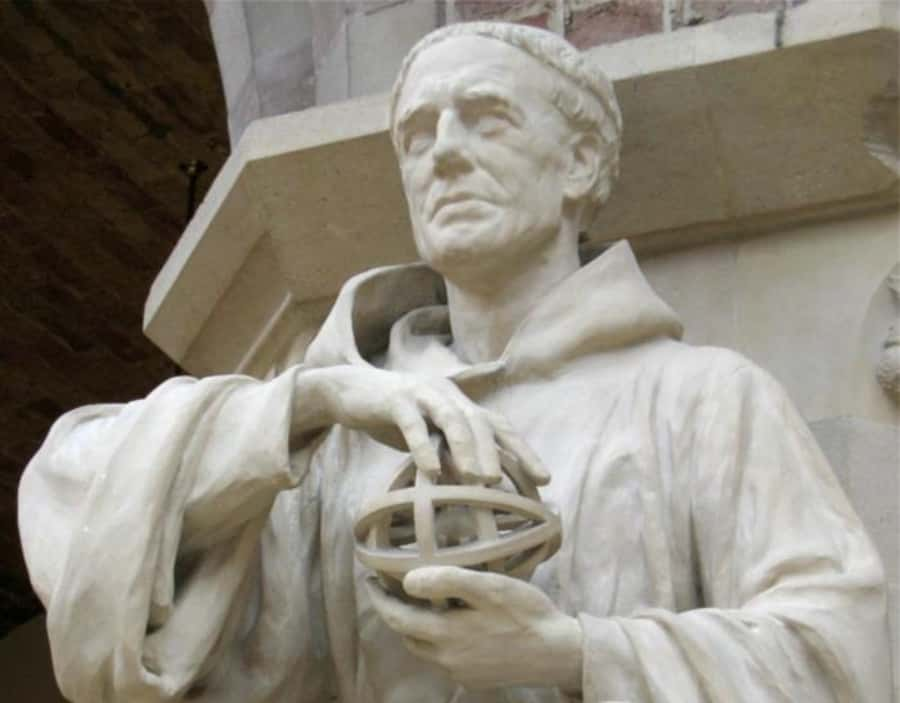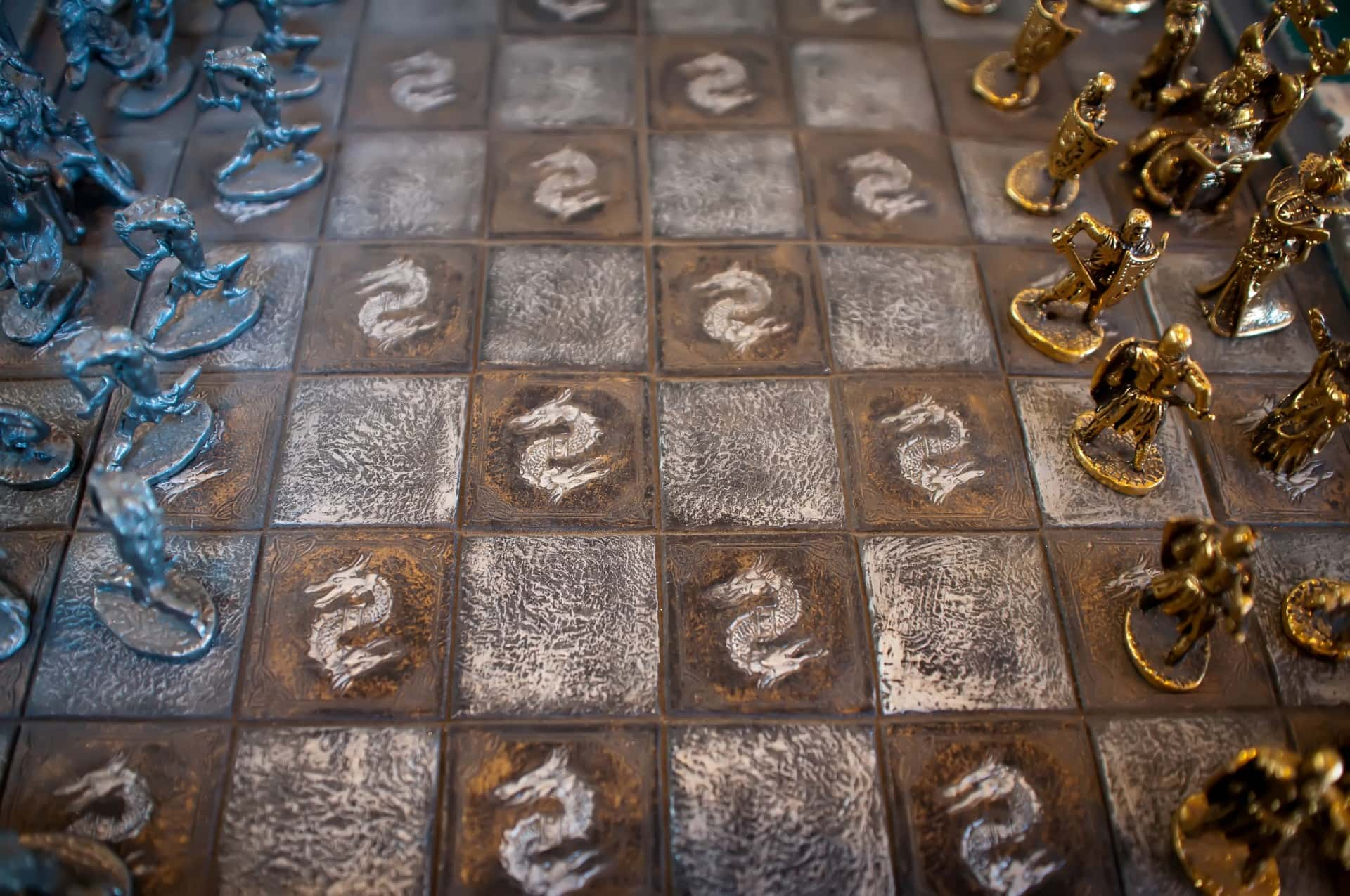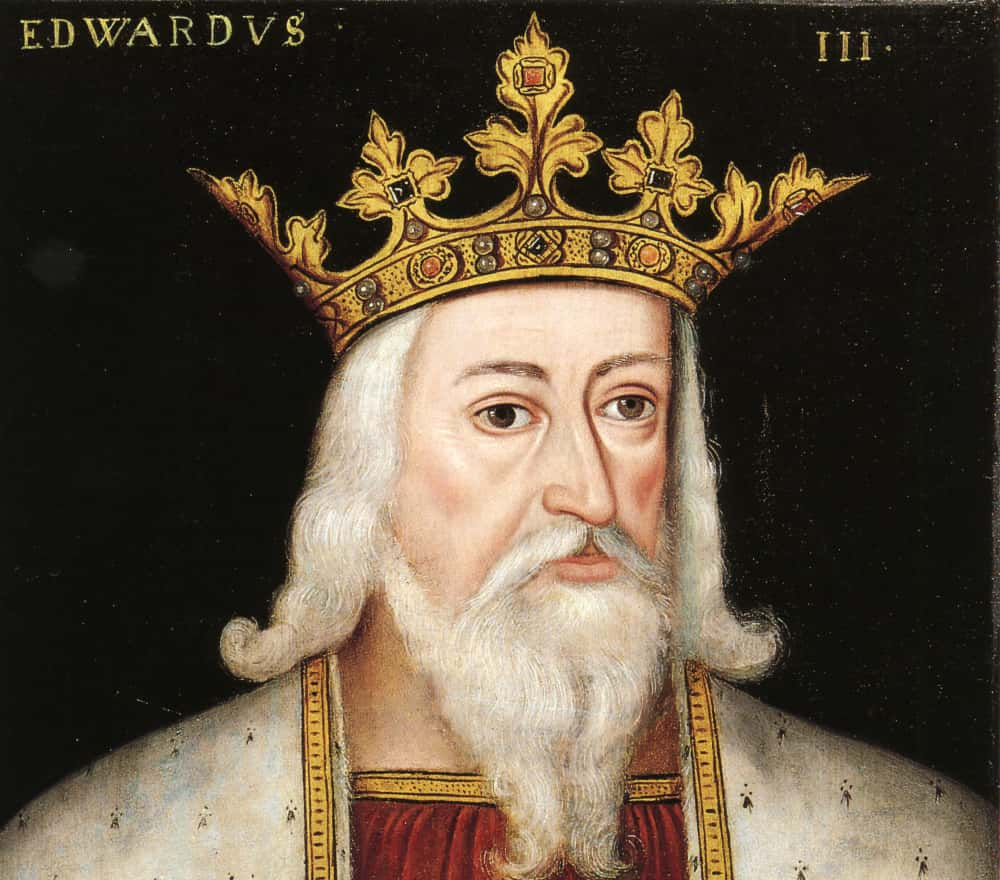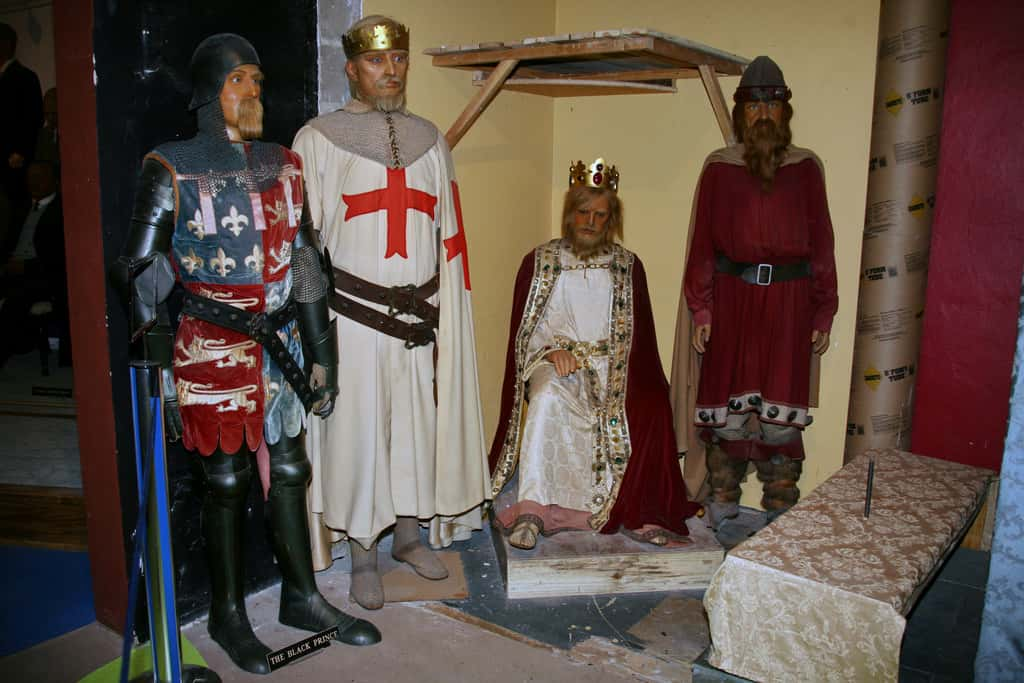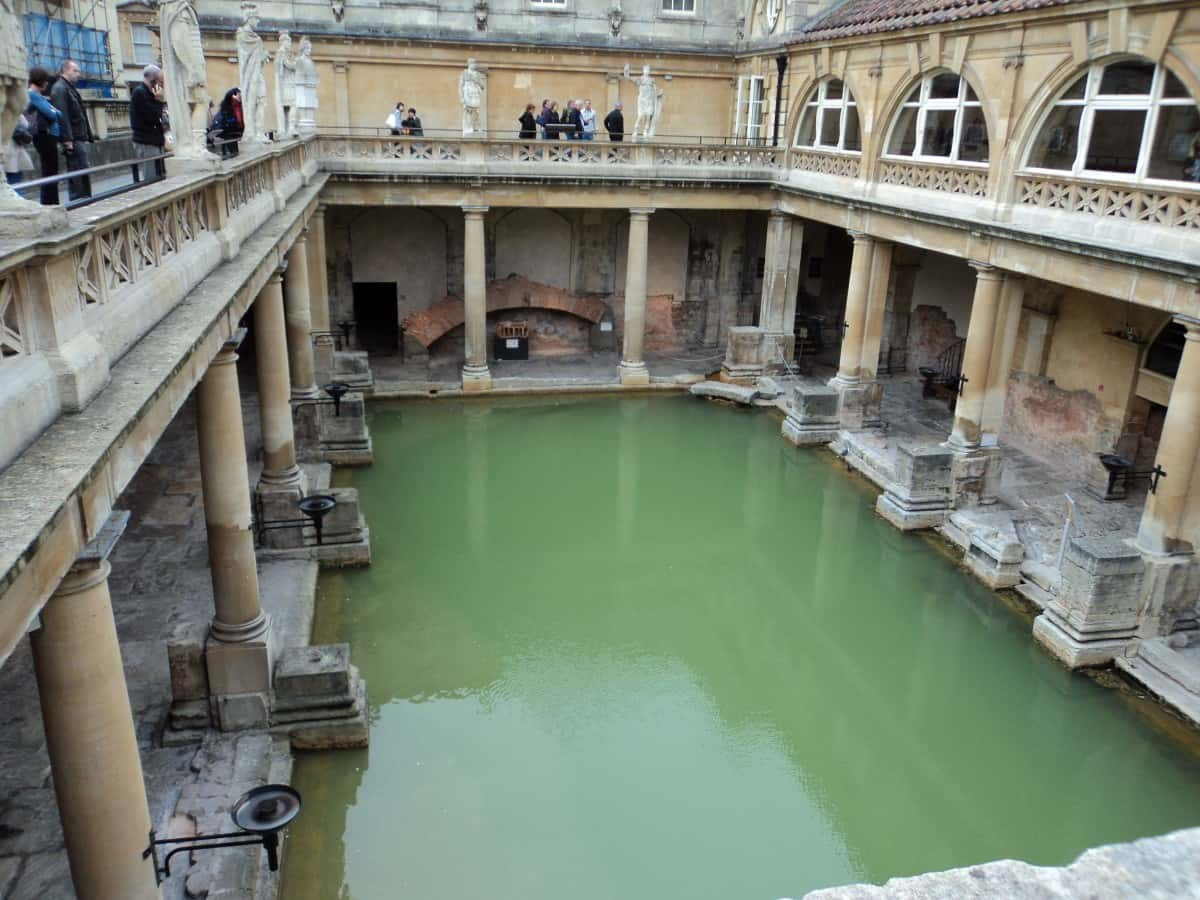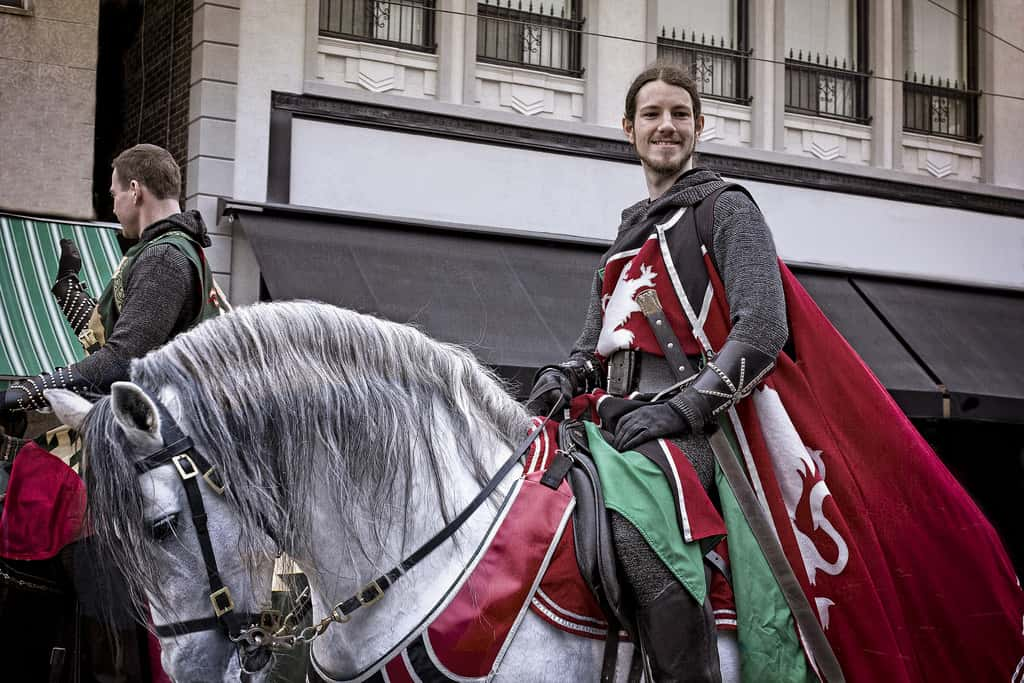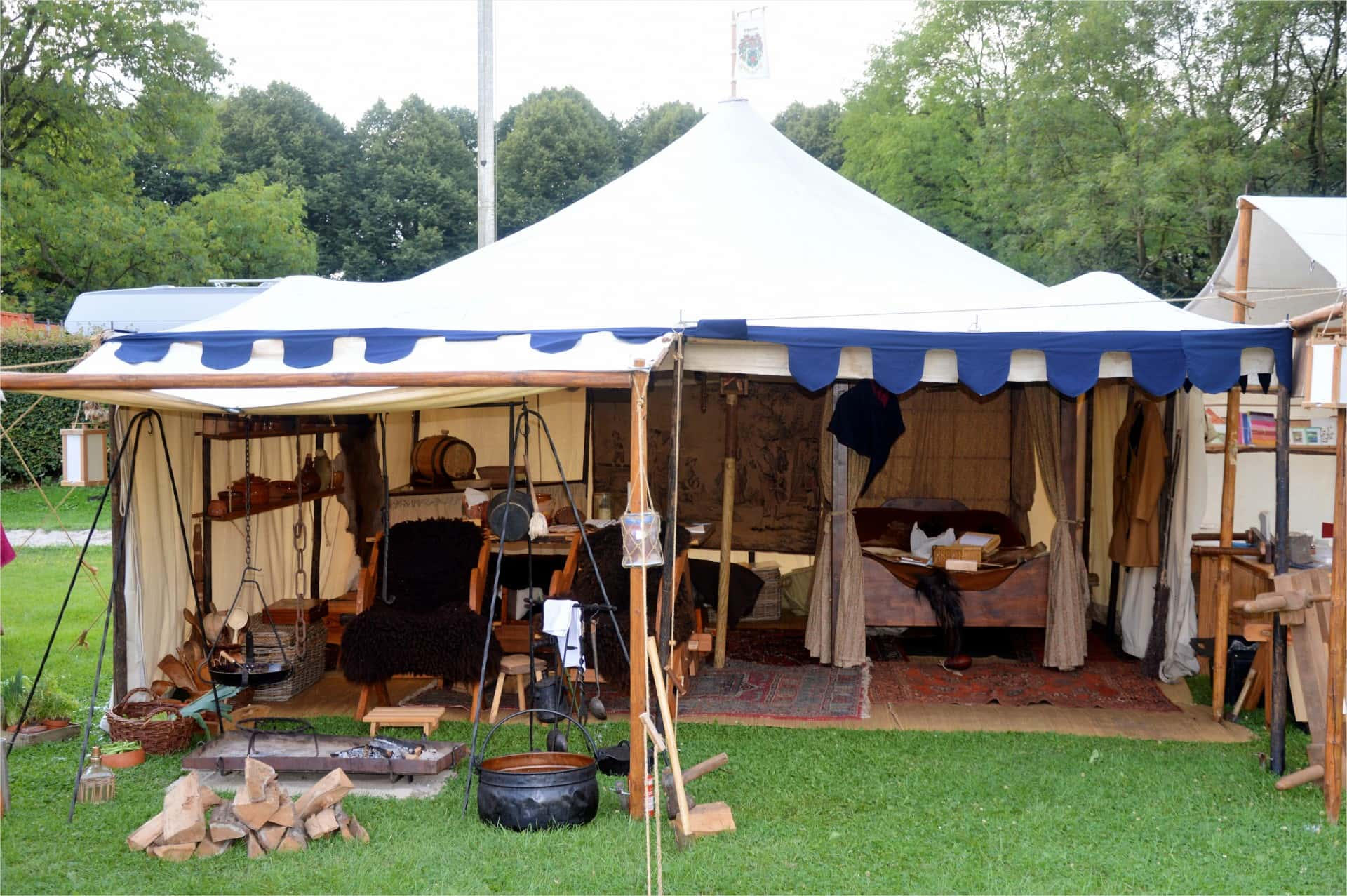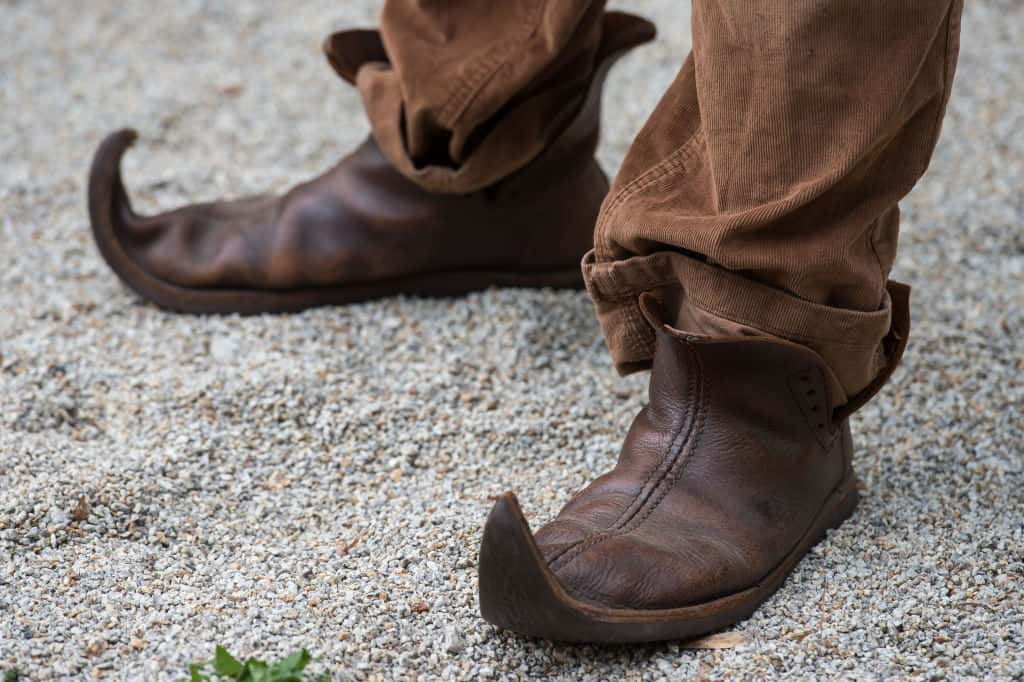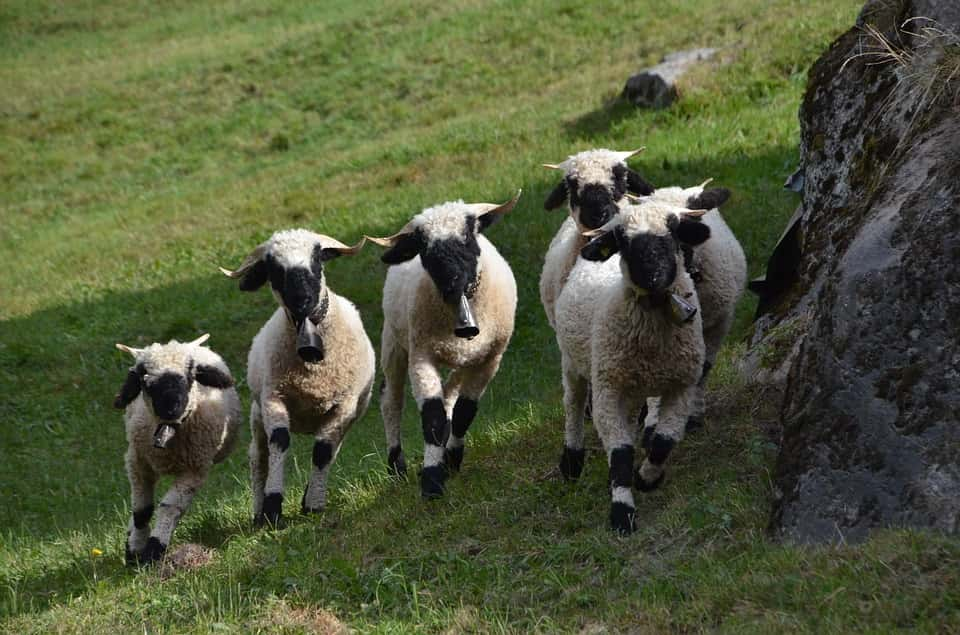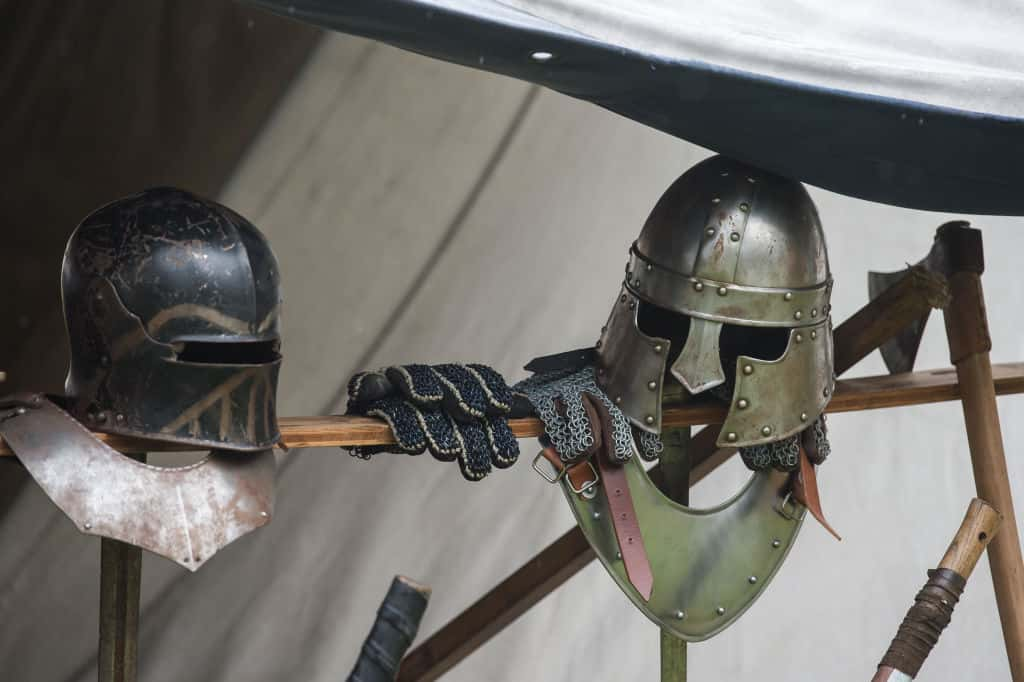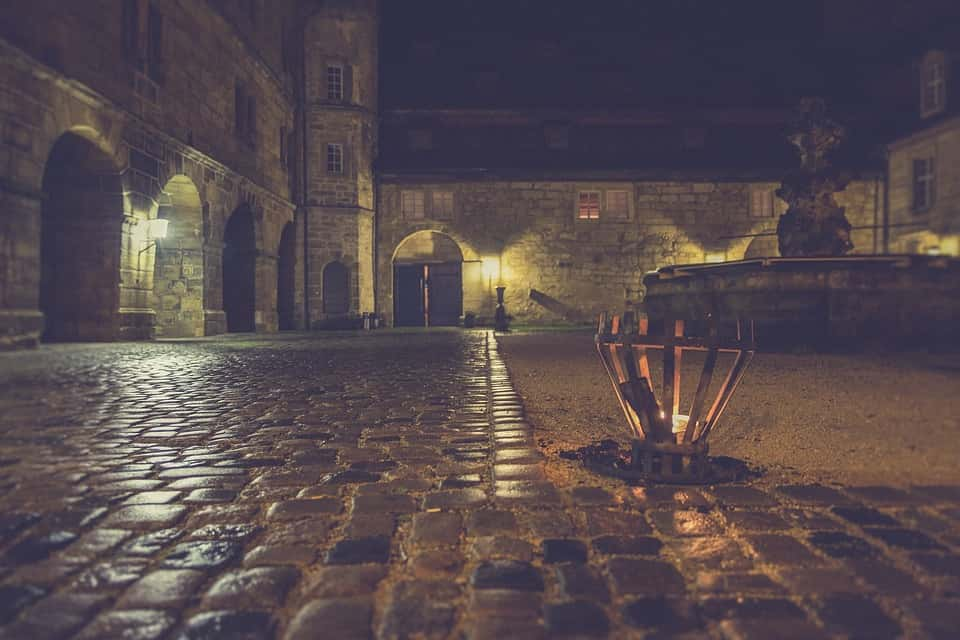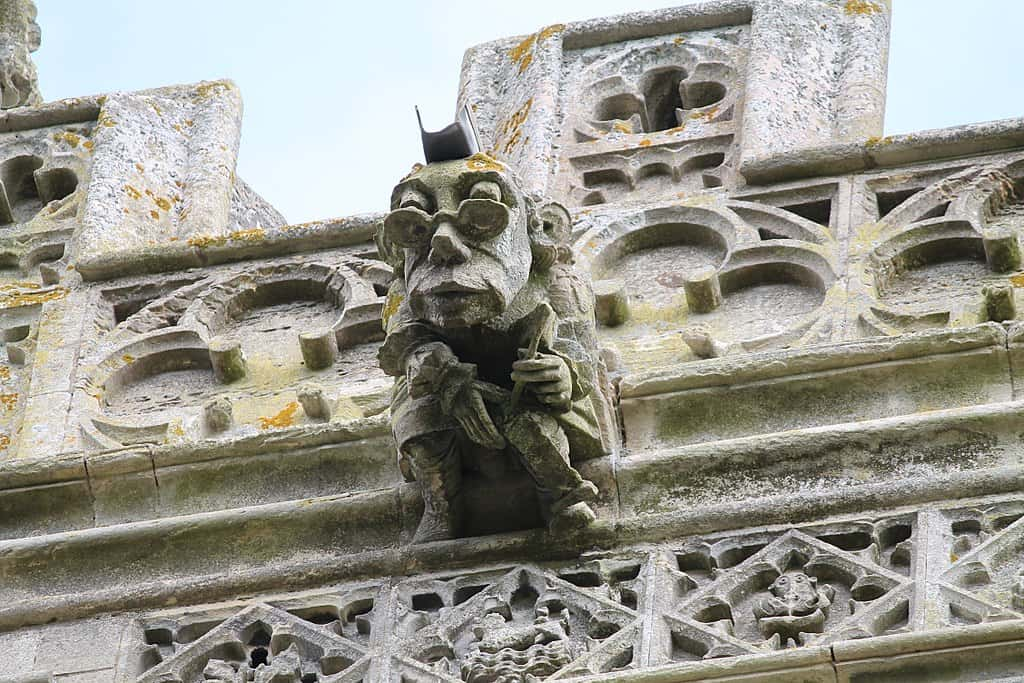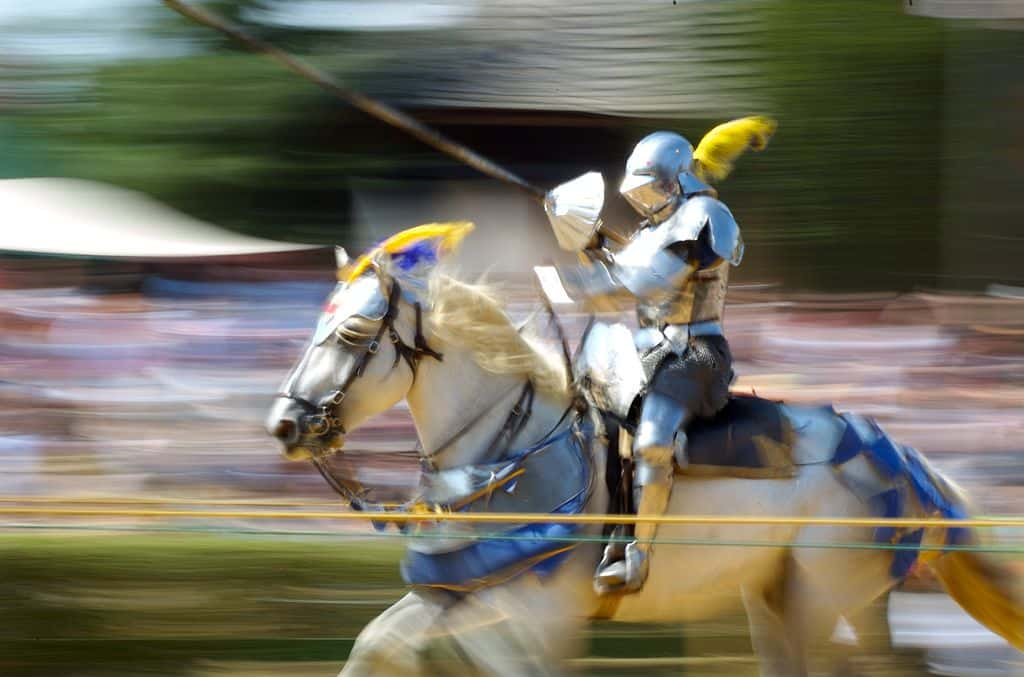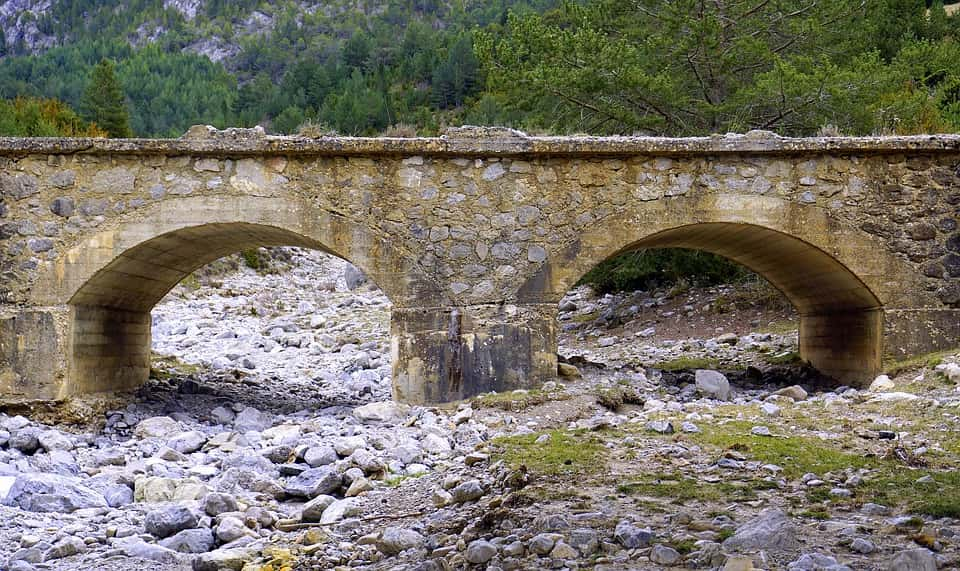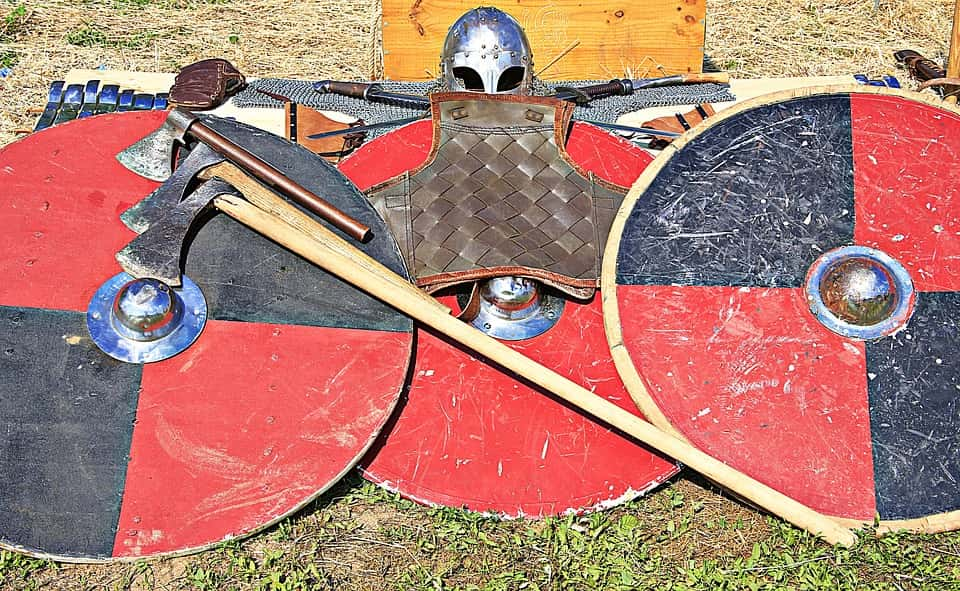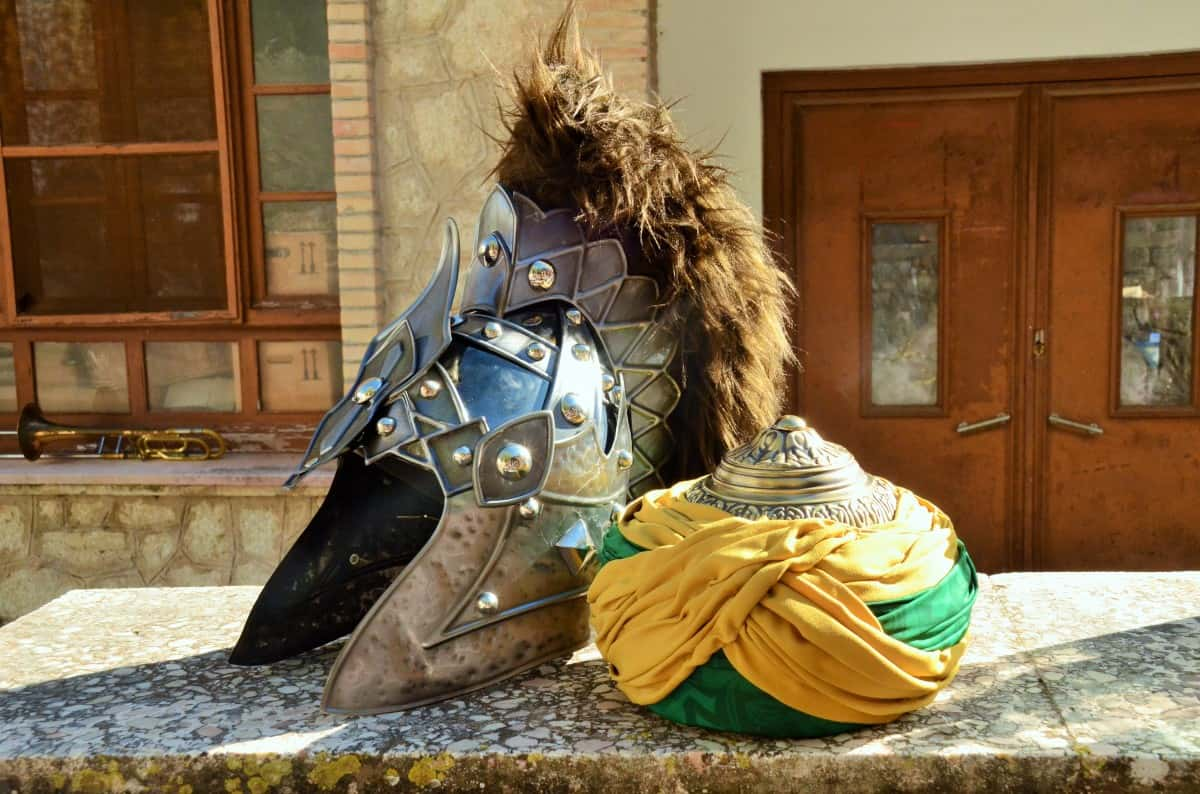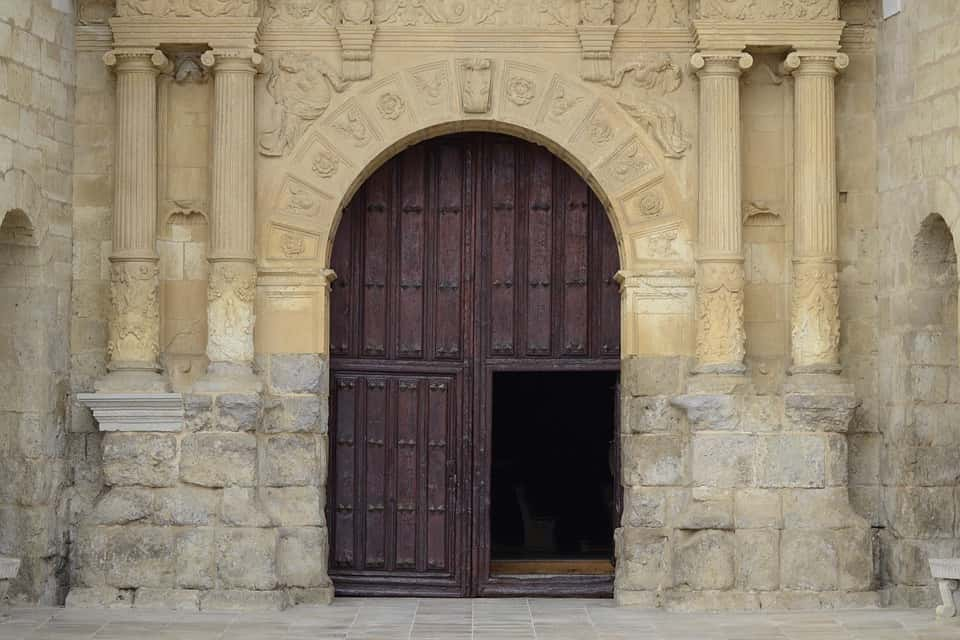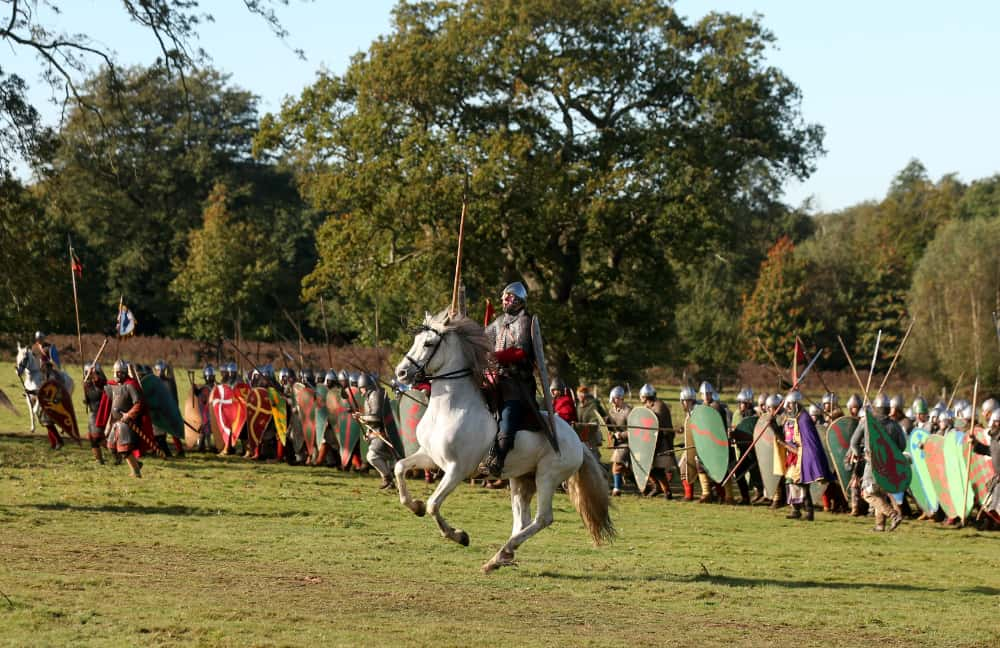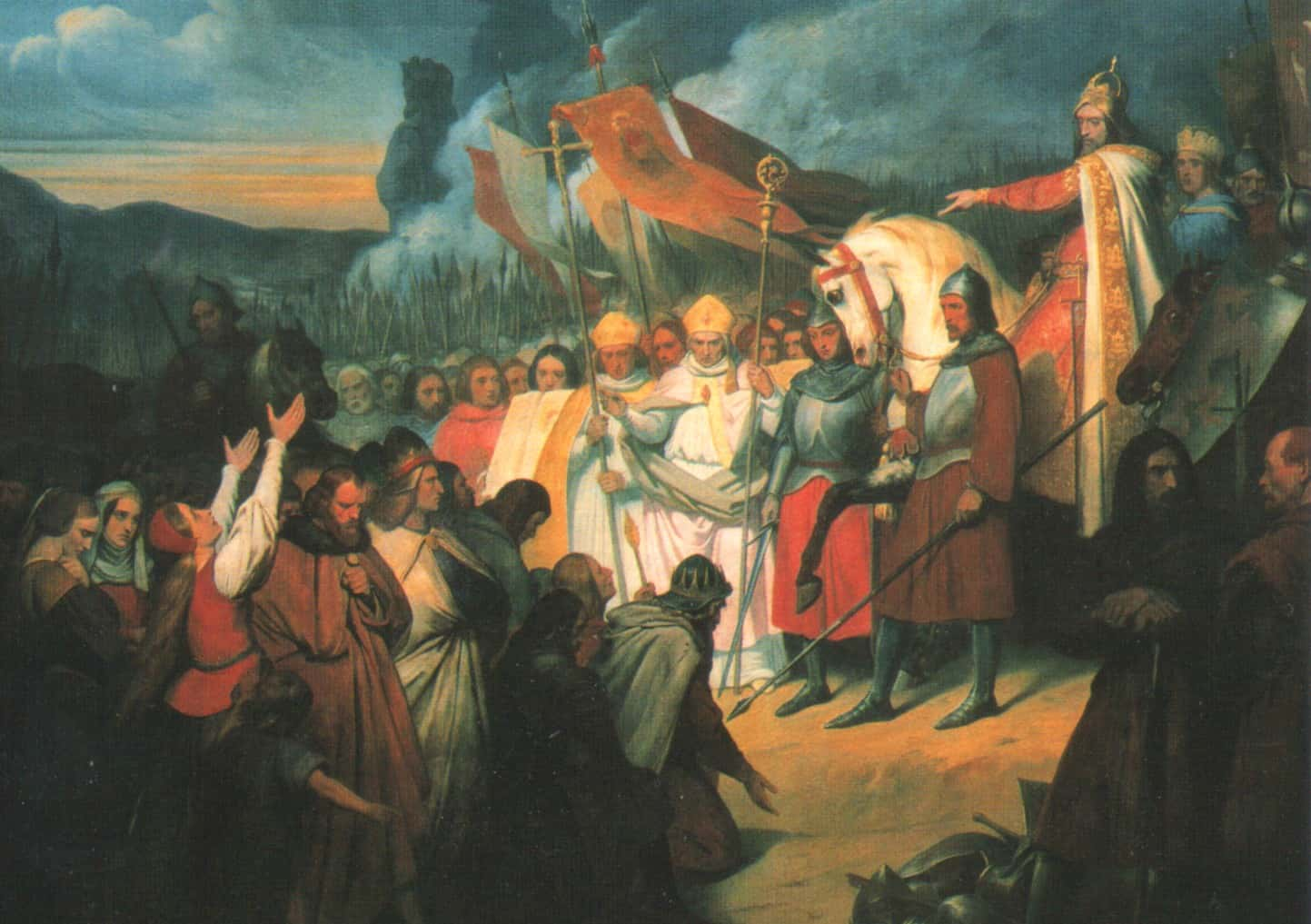There was a popular sport in medieval England that involved unlimited number of players, a pig’s bladder, and very few rules. What was it called?
“Mob Football” was a medieval “sport” that involved an unlimited number of players, a pig’s bladder, and very few rules. Because it was so destructive, it was banned by King Edward II in 1314.
Which of these advancements was NOT predicted by the medieval scientist, Roger Bacon?
Roger Bacon, by the way, is worthy of an article all his own. He wrote prolifically, performed mind-blowing research, and had a habit of making eerily accurate predictions about the far future. Just a few of those predictions? How about cars, helicopters, steamships, submarines, and SCUBA suits. All of this coming from a man who lived before the invention of the telescope.
Chess was brought to Europe by which group of people?
The Moors were responsible for some of the most impressive societal advancements of the time. Chess was just one thing they brought to Europe.
In 1363, King Edward III of England created a law that forced all English to spend their Sundays...
In 1363, King Edward III instituted the archery law, which demanded that all male subjects practice archery for two hours every Sunday under the supervision of the local clergy.
During the middle ages, barbers were also responsible for...
The iconic red and white barber’s pole symbolized blood and bandages as most barbers also performed double duty as surgeons and dentists. Bandages stained with blood would be washed and hung from a pole outside the barber’s shop and, after twisting in the wind, would wind around the pole into the recognizable spiral pattern.
What disease caused the Black Death?
The Black Death decimated medieval civilization. For example: 1.5 million English citizens were wiped out in two years by the plague.
After William the Conqueror took over England, he conducted a census of his new lands and people. This was called...
Medieval people were actually quite clean… until public bathhouses were banned in the 16th-century. Why were they banned?
Although medieval folk are often depicted as filthy, the truth doesn't necessarily match up. Many people believed in the tenet that “cleanliness is next to Godliness,” and took whatever opportunity they had to bathe. Hygiene did deteriorate somewhat, however, after public baths were opposed by Protestants in the 16th century due to high levels of prostitution.
Which English king was also known as “The Lionheart”?
King Richard I, the Lionheart, is notable for having spent much of his time as king away from England. He spent a large chunk of his lifetime on Crusades.
True or False: In the medieval times, an hour had a different length depending on the time of year.
In the early Middle Ages, days were divided into 7 hours of equal length. Winter hours were 60 minutes long while summer hours were 150 minutes long.
What was a cod-piece?
One of the most popular fashion accessories of the Middle Ages was the codpiece – a flap or pouch that attached to the front of the crotch of men's trousers and accentuated or exaggerated the genitals. They were stuffed with sawdust or cloth and held closed by string ties, buttons, or other methods. The crotch was often extremely large or gave the idea of an erect member.
Which of these options was not a feature of medieval men’s fashion?
14th-century men’s fashion was basically a live-action version of Peter Pan. We're talking about really saucy outfits, with fashionable young noblemen parading around in tights, corsets, and short tunics that would show off just a little of their behind.
True or False: Medieval livestock were often much bigger than the animals we farm today.
Medieval farm animals were very small compared to modern livestock. A full-grown bull would be about the size as a modern calf and sheep were a third the size. The amount of fleece a medieval sheep would produce was about 7 times less than that of a modern-day sheep.
Because of the extended time frame, the Middle Ages are generally split into the Early, High and Late stages.
Because of the extended time frame, the Middle Ages are generally split into the Early, High and Late stages.
What was a “Help Ale”?
For years, the default cultural stereotype (at least in Western culture) has been to paint women as the more emotional, and more invested, half of a heterosexual relationship. But the science doesn't back that up… Statistically, men are more likely to say “I love you” in a relationship than women.
What was the purpose of building a gargoyle on a church?
Contrary to popular belief, gargoyles were not put there by churches to ward off evil spirits. They were actually there to prevent water damage by having the water flow out of their mouths and away from the building.
Jousting was a serious business. The sport was dangerous, wildly popular, and often had a decent amount of money riding on the outcome. What was one common way of cheating?
Having a longer lance would mean a chance to hit the other rider long before they could retaliate, and could sometimes allow a less-skilled rider to win the joust. And many men were not afraid to try and sneak their longer lance into the match for exactly that reason.
Which famous bridge was torn down by Saxons in 1015?
One of the earliest versions of London Bridge was torn down in 1015 by Saxons who had rowed up the Thames to help their king retake the city. Maybe this was the inspiration for the nursery rhyme, “London Bridge is Falling Down.”
Bread was a common foodstuff… but it could also be dangerous. Why is that?
Bread was a common foodstuff, but it was also dangerous when villagers ran out of wheat before harvesting season. They would resort to making bread out of old rye, which could be infected with ergot, a fungus that caused hallucinations and sometimes death.
What was the name of the French peasant who rose to become a prominent religious figure and military commander, all by the age of 19?
Joan of Arc is one of the most fascinating figures of the medieval period. She helped to rally the soldiers of France during the Hundred Years War against England... but was eventually burned at the stake before her 20th birthday, for allegedly heretical behavior.
What species of animal roamed free in the Medieval British countryside, before being hunted to extinction?
Brown bears once roamed the English countryside... but they became extinct around the 11th century. In the latter parts of the Middle Ages, they were brought back to England for sport.
What was the name given to the group of Arabian, African, and European-born Muslim people who took over the region that is now Spain, in around the 8th Century?
Beginning in roughly the 8th-Century, troops from Northern Africa conquered much of the Iberian Peninsula... what is now modern-day Spain and Portugal. Medieval scholars called these people the Moors... although the Encyclopedia Britannica is quick to point out that the term was lazily used to describe a wide variety of groups, including Arabians, Africans, and European-born Muslims.
Which group made up the largest part of the population in feudal society?
Feudal societies were massively unequal. While Kings and Queens (and Lords and Ladies) may have lived relatively lavish lifestyles for the time, the vast majority of the population were peasants, or serfs, who worked the land and lived in poverty.
The Norman Conquest of England was led by...
William the Conqueror, from Normandy (Northern France) took over England after his victory at the Battle of Hastings in 1066.
How did the Middle Ages begin?
It's relatively simple: in around the year 400, the Western Roman Empire collapsed. The great power which had brought order, prosperity, and a cultural code to Europe for 1000 years evaporated. In its wake, the peoples of Europe struggled to define new forms of society, and build new means of gathering wealth.
Your Results
History fan
You’ve clearly been studying your history. Sure, a few of those questions got past you… but that’s because we made this as hard as humanly possible. And you still did pretty dang well. Good on you.
Master historian
You must be a professional historian. Who else would have such deep knowledge and understanding of the most obscure details of the Dark Ages? Very impressive… well done.
Happy With Your Test Score? This video can help you do better on any quiz... even if you know ABSOLUTELY NOTHING about the topic.
Quiz
One of the most fascinating periods in history, the medieval era spanned the 5th century to about around the 15th, starting with the fall of the Roman Empire and merging into the Renaissance and the Age of Discovery. It was punctuated by major events such as the signing of the Magna Carta, the Hundred Years War, and the Black Death. But how much do you know about those dark and dingy years. Time to find out...
More from Factinate

Featured Article
My mom never told me how her best friend died. Years later, I was using her phone when I made an utterly chilling discovery.

Nothing stays hidden forever—and these dark family secrets are proof that when the truth comes out, it can range from devastating to utterly chilling.

Featured Article
Madame de Pompadour was the alluring chief mistress of King Louis XV, but few people know her dark history—or the chilling secret shared by her and Louis.

Madame de Pompadour was the alluring chief mistress of King Louis XV, but few people know her dark history—or the chilling secret shared by her and Louis.
More from Factinate

Featured Article
I tried to get my ex-wife served with divorce papers. I knew that she was going to take it badly, but I had no idea about the insane lengths she would go to just to get revenge and mess with my life.

When someone really pushes our buttons, we'd like to think that we'd hold our head high and turn the other cheek, but revenge is so, so sweet.

Featured Article
Catherine of Aragon is now infamous as King Henry VIII’s rejected queen—but few people know her even darker history.

Catherine of Aragon is now infamous as King Henry VIII’s rejected queen—but very few people know her even darker history.
Dear reader,
Want to tell us to write facts on a topic? We’re always looking for your input! Please reach out to us to let us know what you’re interested in reading. Your suggestions can be as general or specific as you like, from “Life” to “Compact Cars and Trucks” to “A Subspecies of Capybara Called Hydrochoerus Isthmius.” We’ll get our writers on it because we want to create articles on the topics you’re interested in. Please submit feedback to contribute@factinate.com. Thanks for your time!
Do you question the accuracy of a fact you just read? At Factinate, we’re dedicated to getting things right. Our credibility is the turbo-charged engine of our success. We want our readers to trust us. Our editors are instructed to fact check thoroughly, including finding at least three references for each fact. However, despite our best efforts, we sometimes miss the mark. When we do, we depend on our loyal, helpful readers to point out how we can do better. Please let us know if a fact we’ve published is inaccurate (or even if you just suspect it’s inaccurate) by reaching out to us at contribute@factinate.com. Thanks for your help!
Warmest regards,
The Factinate team

